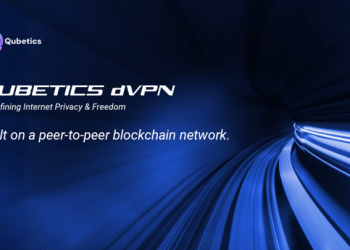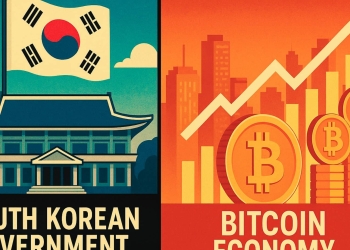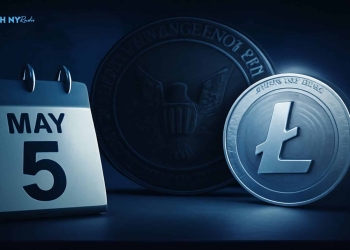Crypto is taking yet another massive leap into the mainstream. This time, it’s thanks to an eye-catching partnership between two heavyweights: Mastercard, a global payments leader, and Kraken, one of the longest-standing cryptocurrency exchanges. Their latest collaboration aims to revolutionize how crypto works in the UK and Europe—by integrating it directly into everyday payments.
Here’s a breakdown of this ambitious move, what’s in it for users, and why it’s sparking both optimism and concern across the financial space.
What’s the Deal Between Mastercard and Kraken?
This partnership sets an ambitious target: making digital assets usable like everyday money. With a co-branded payment card, Mastercard and Kraken aim to connect traditional banking with decentralized finance. Soon, users will be able to make purchases at millions of Mastercard-accepting merchants using their digital holdings.
Though payment cards tied to digital currencies have existed before, this move represents a stronger commitment to building a regulated, compliant, and scalable system for digital transactions across Europe.

Why the UK and Europe?
Kraken recently secured an Electronic Money Institution (EMI) license from the UK’s Financial Conduct Authority (FCA), allowing it to provide fiat-related services and strengthen its presence in traditional finance. This approval from one of the world’s most stringent regulators marks a major milestone in digital asset adoption.
Meanwhile, Europe is advancing toward clearer regulation through the upcoming MiCA (Markets in Crypto-Assets) framework. Mastercard views this as the perfect time to invest in digital payment innovation as the region builds a safer, more structured environment for growth.
The Upsides You Can’t Ignore
- Convenience: Consumers can soon use crypto just like cash.
- Speed: Faster deposits and withdrawals between Kraken and your bank.
- Accessibility: Millions more people could enter the crypto space with less friction.
- Security: Kraken’s reputation for tight compliance and safety makes this rollout promising.
- Mainstream Appeal: The Mastercard name adds legitimacy to crypto, helping to erase the “Wild West” stigma.
But There Are Real Risks Too
While the headlines are upbeat, this partnership isn’t without concerns:
- Volatility: Paying for coffee with crypto that drops 10% in a day? Risky.
- Privacy: Traditional financial companies entering crypto may lead to increased surveillance and data collection.
- Fees: Some crypto cards carry hidden or unclear charges.
- Centralization: Critics argue this move strengthens centralized power in a space originally built to avoid it.
Still, most experts see this as a critical step in crypto’s global evolution.
Why Crypto Matters More Than Ever?
Digital currency is no longer just an asset—it’s evolving into a payment method, a financial tool, and even a lifestyle choice for many. The Mastercard-Kraken alliance highlights a clear shift in demand: people want more than just to invest; they want to spend and engage with their digital funds actively.
Using these assets for everyday needs—like shopping, travel, and subscriptions—is the next big step. This partnership brings that vision within reach like never before.
What Mastercard Brings to the Table?
Mastercard has been active in the digital asset space for some time—partnering with exchanges, testing blockchain technology, and launching pilot programs. What Kraken adds is scale, strong security, and years of hands-on experience, giving this collaboration a significant impact.
Thanks to its massive global merchant network, Mastercard offers something the industry has long needed: true universality.
Kraken’s Strategy: Trusted Yet Bold
Kraken stands out as one of the few exchanges to survive every boom and bust cycle since Bitcoin’s early days. Its commitment to compliance, especially in the UK, sets it apart from flashier competitors.
Now, with this deal, it’s expanding beyond just trading—moving toward being a comprehensive crypto banking alternative.
The Bigger Picture: Digital Currency’s Ongoing Mainstream Shift
This goes beyond a payment card—it’s about changing perceptions. What was once considered a niche is now becoming part of everyday life. Partnerships like this are shifting digital assets from speculative investments to practical tools for daily use.
As Mastercard and Kraken expand this service throughout Europe, it could pave the way for similar developments in the U.S., Asia, and other regions, accelerating the global adoption of crypto.
Final Take: A Milestone for Digital Finance, with Caution
The Mastercard-Kraken partnership marks a bold move that mixes trust, innovation, and a touch of controversy. It paves the way for broader digital asset usage while also sparking concerns around centralization, fees, and price swings.
For those keeping an eye on the industry, this stands out as one of the most impactful developments in digital payments in recent years. If successful, it could make your digital wallet just as practical as your physical one.
Follow us on Twitter and LinkedIn, and join our Telegram channel for more news.
FAQs
1. What does the Mastercard and Kraken partnership mean for crypto users?
It means users will soon be able to spend crypto like regular money through a Kraken-Mastercard payment card accepted worldwide.
2. Is it safe to use crypto with a payment card?
Yes—Kraken is FCA-licensed in the UK, and Mastercard applies strict compliance and fraud protection measures.
3. Will this service be available outside the UK?
Yes, it will expand across Europe with plans to possibly roll out globally in the future.
4. Are there any downsides to using crypto for everyday purchases?
Yes—price volatility, possible fees, and privacy concerns may impact daily use.
Glossary of Key Terms
Crypto – Short for cryptocurrency, a digital or virtual form of money secured by cryptography, like Bitcoin or Ethereum.
Kraken – A global cryptocurrency exchange known for its strong compliance and security track record.
Mastercard – A multinational payment network that facilitates global electronic payments via credit, debit, and prepaid cards.
FCA (Financial Conduct Authority) – The UK’s financial regulator that oversees financial markets and protects consumers.
EMI License – An Electronic Money Institution license allowing firms to offer digital payment and fiat services within regulatory frameworks.
Fiat – Government-issued currency, like the U.S. dollar or British pound, that isn’t backed by a physical commodity.
MiCA (Markets in Crypto-Assets) – A proposed EU regulatory framework aimed at regulating crypto assets and service providers.
Volatility – Rapid and unpredictable changes in the price or value of an asset, common in crypto markets.
Decentralized Finance (DeFi) – Financial services built on blockchain technology that don’t rely on traditional intermediaries like banks.

























































































![BitTorrent [New]](https://s2.coinmarketcap.com/static/img/coins/64x64/16086.png)




















